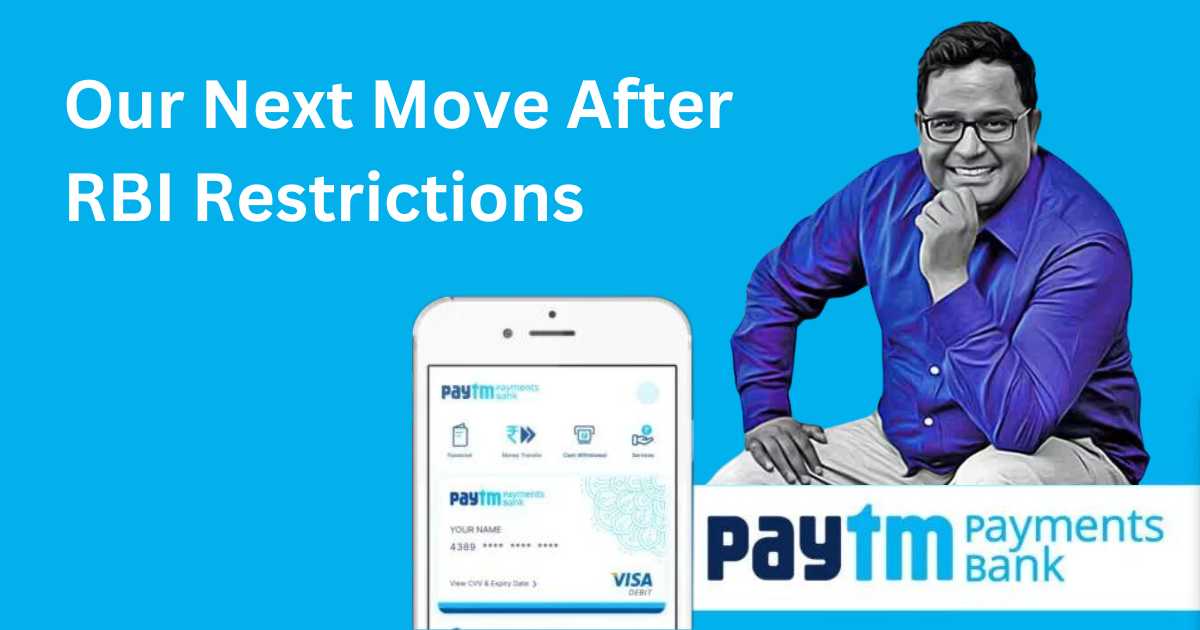The Reserve Bank of India (RBI) recently made headlines when it ordered Paytm Payments Bank, a popular subsidiary of Paytm, to halt accepting fresh deposits and conducting credit transactions after February 29, 2024. The move has left many wondering about the future of this prominent payment bank.
The RBI has stated that Paytm Payments Bank will no longer be able to accept new deposits, offer fund transfers, or facilitate credit transactions, including Unified Payments Interface (UPI) services. Yogesh Dayal, a chief general manager with the central bank, explained in a press statement that “no further deposits or credit transactions or top-ups shall be allowed in any customer accounts, prepaid instruments, wallets, FASTags, NCMC cards, etc.” However, existing user deposits, as well as any interest, cashbacks, or refunds, will remain unaffected.
Major Highlights about Paytm Payments Bank
- Paytm Payments Bank, a subsidiary of Paytm, has been instructed by the Reserve Bank of India (RBI) to cease accepting new deposits and conducting credit transactions after February 29, 2024.
- The RBI’s decision was prompted by ongoing compliance issues and significant supervisory concerns at Paytm Payments Bank, although specific details have not been disclosed.
- Existing user deposits in Paytm Payments Bank, as well as any interest, cashbacks, or refunds, will not be affected by the RBI’s directive.
- Paytm Payments Bank is actively collaborating with the RBI to address their concerns and ensure compliance with the regulatory guidelines.
- In response to the restrictions, Paytm has opted to strengthen its partnerships with other banks to distribute payments and financial services products, while discontinuing its association with Paytm Payments Bank. The existing payment solutions provided by Paytm will continue to function normally.
The RBI’s decision to impose restrictions on Paytm Payments Bank comes after persistent non-compliances and material supervisory concerns were revealed through a Comprehensive System Audit report and subsequent compliance validation report. While the details surrounding these concerns have not been disclosed, the regulatory action has been taken under Section 35A of the Banking Regulation Act, 1949.
In response to the RBI’s restrictions, Paytm Payments Bank has shared its plan to comply with the directives. The bank, which is an associate of One 97 Communications Limited (OCL), has affirmed its commitment to addressing the concerns raised by the regulator. Paytm Payments Bank is actively working with the RBI to ensure quick resolution.
Update: Paytm Payments Bank Limited, an associate of Paytm receives RBI directions. Paytm to expand its existing relationships with leading third-party banks to distribute payments and financial services products.
— Paytm (@Paytm) January 31, 2024
Read more here: https://t.co/NsPCOxp6VJ pic.twitter.com/fQjozyR11m
It is important to note that the restrictions imposed by the RBI do not affect user deposits in their savings accounts, wallets, FASTags, and NCMC accounts. Existing balances and services can still be utilized. To ensure continuity and uninterrupted services, Paytm has decided to expand its partnerships with leading third-party banks for the distribution of payments and financial services products.
As part of its strategy, Paytm will now solely operate with other bank partners, excluding Paytm Payments Bank Limited. This move aligns with OCL’s broader vision to expand its payments and financial services business exclusively through partnerships with other banks. Existing payment solutions provided by Paytm, such as Paytm QR, Paytm Soundbox, and Paytm Card Machine, will continue to function as usual, allowing the onboarding of new offline merchants.
Regarding the termination of nodal accounts of Paytm Payments Services Limited (PPSL) and OCL, both entities will transition the nodal responsibilities to other banks by the specified deadline. Paytm plans to forge partnerships with various other banks to offer a range of payment products to customers. Furthermore, Paytm’s other financial services, such as loan distribution, insurance distribution, and equity broking, are expected to be unaffected by the RBI’s directive.
While the impact on the annual EBITDA of OCL is estimated to be between Rs. 300 to 500 crores, the company remains optimistic about its profitability and is committed to improving its financial performance going forward.
To address concerns stemming from market rumors, Paytm’s founder has clarified that he has not taken any margin loans or pledged any shares owned directly or indirectly by him. Paytm Payments Bank Limited operates independently under the guidance of its management and board. While OCL retains two board seats as part of its shareholder agreement, it exerts no influence on the operations of Paytm Payments Bank Limited beyond its role as a minority board member and shareholder.
Also Read: Paytm Payments Bank Faces RBI Bar on Accepting Deposits
The industry eagerly awaits further updates on Paytm’s future plans and its collaboration with other banks to continue providing seamless payment and financial services to millions of users across India.
In conclusion, Paytm Payments Bank faces a critical period following the RBI’s restrictions, but the bank is determined to address the concerns raised and has charted a course of action in collaboration with other banks. The coming months will shed light on the bank’s path forward and its ability to adapt to changing regulatory landscapes while maintaining its commitment to customer service and innovation.
Last Updated on 9 months












